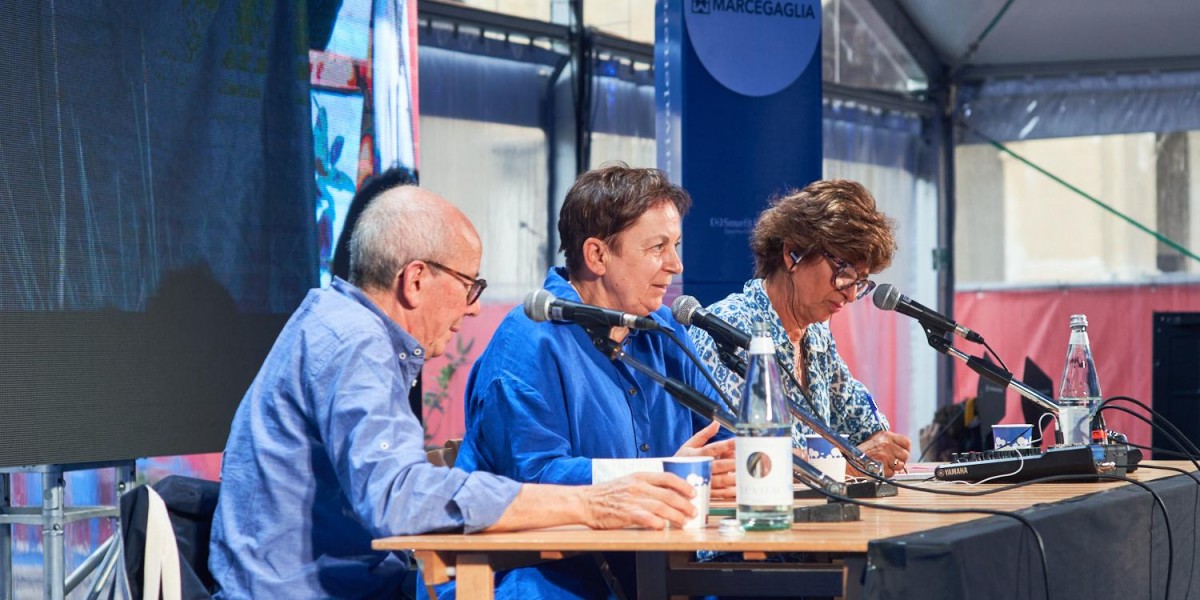
Stories overcome history with Anne Enright
There are two pretexts to Anne Enright closing the twenty-sixth edition of Festivaletteratura. One is the reprinting of The Gathering (La Veglia, by Italian publisher La nave di Teseo), her Booker-prize winning fourth novel. Another is that this year's festival had picked Ireland as its fictional host country, bringing to Mantua various voices of the ever-expanding Irish canon.
There's a parallel between these facts, one that, however, Anne Enright rejects. There's "always a loss, a wound, a trauma. I always ask my students if they've found it; that's how we write, we write alone", she asserts. In The Gathering, Veronica mourns the loss of her brother Liam. After his suicide, she turns to reveries, reminiscing about their shared past, filling gaps in their history. These "acts of imagination are restorative", reaffirming the dignity of those like Liam.
The parallel, sought by journalist Wlodek Glodkorn, is with the collective parable of Ireland, with its political, social and linguistic history providing wounds which generations of writers needed to restore. This lyrical elevation of collective trauma is one from which Anne Enright is "glad to move on" around halfway into the talk. "I am exhausted to be Irish, I've been Irish all day!", she quips.
Her stories are about image and mask. Her writing starts with characters, whose relation to the surrounding socio-political environment is often better "left to the reader or the critic". And so, there's death and mourning in her novels because "how we do it is really something". There's sex "because people do it. I am quite suspicious of books where characters don't have sex, or where sex is one thing; it's very individual".
If there is "Ireland", if there's home in her stories, it's one voiced by multitudes, changing over time like a character. Anne Enright joins Aleksandar Hemon, whom she heard days before at the festival, in decrying instead idyllic visions of one's home country. Left unattended, such visions can become "set, fixed, and angry". Ireland itself has changed dramatically in recent years, the repeal of the Eighth Amendment on abortion showing the cracks in the supposed monolith of Irish traditionalism.
It used to be "such a bad career move to be an Irish woman, until recently". Anne Enright, just like her fictional Veronica, is here to tell us stories as "a woman who comes through".



